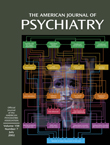Guidelines for the Systematic Treatment of the Depressed Patient
The authors of this monograph are three senior professors of psychology who are dissatisfied with available professional guidelines for the treatment of depression (e.g., those of APA and the Agency for Health Care and Policy Research). The authors offer a thoughtful critique and, in later chapters, mix in scholarly reviews of several related topics, although the one on basic research in psychobiology seems misplaced in this volume. Their focus, however, is an ambitious effort to develop their own treatment guidelines, comprising general treatment principles and not based on a particular model of psychotherapy.
The authors analyzed published studies of individuals with symptoms of depression to elucidate which patient-centered factors appeared related to treatment outcome. They extracted provisional guidelines from these studies based on reviewers’ consensus, tested these principles on several retrospective and one new patient sample with a systematic approach, and produced this book to promote their resulting theses and computerized rating instrument. Their guidelines address the intensity and duration of treatment as well as the effect of therapists’ directiveness and actions on raising or lowering patients’ levels of distress, relating these variables to patients’ levels of functional impairment, experienced social support, and distress.
This is an important and worthwhile effort, but its credibility nonetheless falters as it strains to achieve generalizations, frequently combining proverbial apples and oranges to offer fruit salad conclusions. For example, in reviewing old and disparate studies, the authors confound several issues into a notion of “complexity/chronicity” relating to the severity, chronicity, and multiple types of comorbidity someone with a depressive disorder might have. In addition, in addressing the important question of how valuable psychotropic medication may be for patients with mild depressive episodes, they principally draw conclusions from one study of 184 patients, 20 of whom received an antidepressant (desipramine); details of dose, duration, compliance, and comorbidity are not mentioned. There is a general bias against psychopharmacology, and only an idiosyncratic, selective review could result in assertions such as that depression fails to be a specific entity because it lacks a specific treatment, citing two studies allegedly demonstrating that “nonantidepressant medications and a variety of psychotherapies are all, on the average, similarly effective among patients diagnosed with Major Depression.” The fact that selective serotonin reuptake inhibitors may successfully treat individuals with depression, generalized anxiety disorder, posttraumatic stress disorder, obsessive-compulsive disorder, social phobia, panic disorder, and premature ejaculation does not mean that these disorders are not usefully separated, any more than the fact that propranolol is useful in treating hypertension, angina, essential tremor, and performance anxiety means that these disorders are not validly separable. There is poor understanding of the psychopharmacological literature, an atavistic belief in the validity of “endogenous depression,” and an opinion that psychotropic medication should not be a first-line treatment even for moderately severe depression.
This volume could be somewhat more tightly and cleanly edited, and it is not pitched to the general mental health professional. Its flaws notwithstanding, it is scholarly and stimulating in its review of several areas and would be of interest to individuals writing guidelines for the treatment of depression or conducting such research, those who have an interest in factors relating to psychotherapy outcome, and forensic psychiatrists who need to be knowledgeable about guidelines and standards of care.



